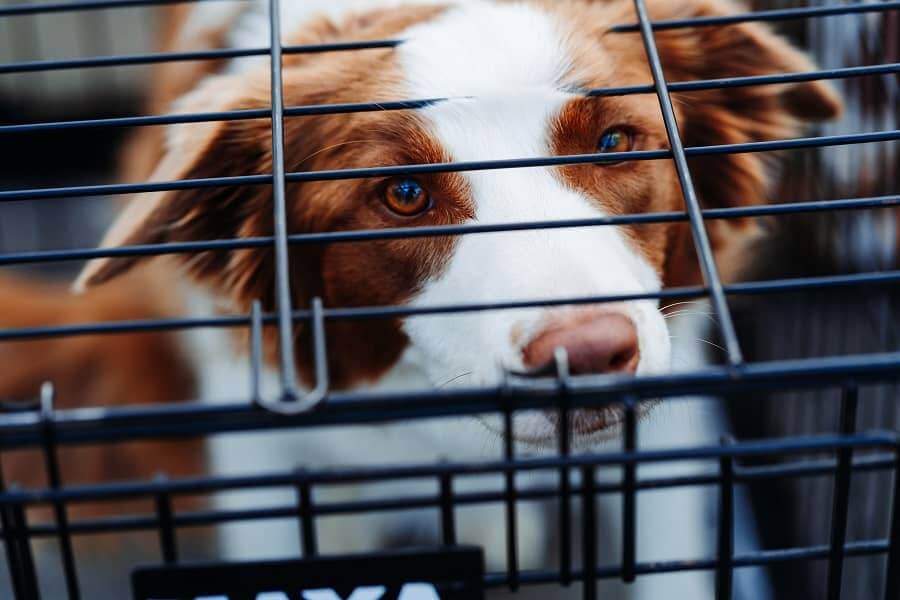What Are Some Common Health Concerns For A Dog? Dog health problems harm children and the elderly. Accidents happen, even though most pet owners do everything they can to keep their pets happy and healthy. Even though we don’t want to think about it, it’s important to learn about the problems, illnesses, and diseases our dogs are most likely to face.
Some diseases and illnesses that dogs can get are more common than you might think. According to the 2019 Pet Survey Report, pet owners spend the most money on food for their pets and vet care. Over 84 percent of the 806 dog owners said they had taken their dogs to the vet in the past year. Most of them did this more than once, with an average of 2.1 visits per dog per year. After checkups and vaccinations, sickness or injury was the third most common reason for vet visits.
We’ve made a list of some of the most common health problems for dogs. Some are small, but others need more specialized care. Please do not rely on any websites that tell you what is wrong or what you should do. Your dog should see a vet as soon as possible for the best care. Your vet will come up with a care and treatment plan for your dog based on its breed, size, age, and overall health.
Cataracts:
This is a serious health problem because it can make it hard for an older dog to see. A cataract is a clouded or opaque lens that blurs vision. A white, blue, or gray spot in the middle of the eye and changes in behavior because of less clear vision are signs of a cataract.
Dogs can make up for their loss of vision with their excellent hearing and sense of smell, so it may be hard for a pet owner to notice cataracts early on. These eye growths are not just a sign of getting older. Cataracts can develop in dogs even before birth or within the first several weeks of life, depending on the underlying reason.
Arthritis:
Arthritis is a general term for changes in a joint that are not normal. It is common in older dogs. In many countries, one out of every five dogs will get arthritis at some point in their lives. In elderly dogs, it causes chronic pain and can contribute to irreversible joint deterioration. There are a lot of injuries to dogs’ hip, knee, shoulder, and elbow joints.
Your dog will be much less active than before, and it will take them longer to get up, particularly in the morning or during cooler weather. If your dog has arthritis, it can be hard to tell. Your dog may be able to hide the pain at first, even if it hurts a lot. Your dog may benefit from anti-arthritis drugs, exercise, and losing weight.
Ear infection:
Dogs often get ear infections, especially if they have long ears or spend a lot of time outside. It’s easy for grass seed or another foreign object to get stuck in your dog’s ear, irritating him and, in time, infecting it. If your dog is always shaking his head and pawing at his ears, he probably has an ear infection. Red or crusty pus or smell can come from sick ears. Usually, your vet will give you ear drops with antibiotics to treat the infection.
Animals’ Coughs:
What Are Some Common Health Concerns For A Dog? Kennel cough can spread to dogs who have been in crowded places like the zoo, a clinic, or a pet hotel. Unfortunately, it is a contagious disease that quickly spreads from one animal to another through contact with contaminated objects or airborne droplets (water, food bowl, or contact with another dog).
Even though it sounds bad, kennel cough is usually not dangerous or life-threatening. For us, it’s like having a cold. When your pet has kennel cough, the best thing you can do is give it a lot of rest, healthy food, and water. If your dog’s health is bad, your vet may give you medicine to help you knock it out.
Diarrhea:
Diarrhea, or frequent bowel movements that are watery or loose, is common in dogs and can be caused by several things, some of which are dangerous and some as simple as a change in diet or a sensitive stomach. In more serious cases, dehydration can lead to more serious health problems like weakness, inability to handle exercise, passing out, or even seizures.
Most dogs with diarrhea get better with time, a healthy diet, and a lot of rest. On the other hand, chronic diarrhea could be a sign of something more serious, like cancer, inflammatory bowel disease, kidney or liver disease, an infection, or a mix of these.
Ticks and fleas:
Almost every dog will get fleas at some point in their lives. Fleas can jump from one host to another, so your dog is most likely to get fleas when it is close to an animal with them. Even if they only have one flea, dogs with fleas may itch a lot all over their bodies, even if they only have one. People often scratch, paw, or lick the bites to stop the itching. This can cause swelling, infection, and hair loss.
Fleas are easy to get rid of with the right treatment, and your local pet store probably has several products that will keep your dog from getting fleas in the future. On the other hand, ticks are much worse. The paralysis tick, common on the east coast of Australia from August to February, can make your dog sick or even kill it. If your dog lives outside, plays with wildlife, or has access to grassy or bushy areas, it is much more likely to come across a paralysis tick. These clever parasites hide in plants until your dog walks through them.
Heartworm:
Heartworms are long, parasitic worms that live in an animal’s heart and lungs and grow to be very large there. Before your dog shows any major signs of having heartworms, the problem has probably been there for a few years and is often fatal. Heartworms used to be a common parasite in dogs, but thanks to new treatments, most cases are no longer seen in some countries.
Because of this, you can help your dog lose weight. Researchers have determined that 95 percent of cases of canine obesity can be treated by modifying the dog’s feeding and exercise routines. There are still worms in some countries, and if you don’t treat them, they can kill you. Talk to your vet to learn the best ways to keep your dog from getting sick.
Blown up bones:
What Are Some Common Health Concerns For A Dog? 95% of instances of canine obesity are treatable by changing the dog’s food and activity habits, researchers have found. This is usually caused by a traumatic event, being hit by a car, or falling from a high place. Dogs often get broken bones, which is a shame. Keep an eye out for a dog limping, has lumps or bones sticking out of its skin, or whimpers or cries when you touch it.
Your dog will try to be brave and hide the fact that it hurts. Some broken bones are easy to fix, while others are hard. The treatment includes surgery to move the bones back into place, immobilization of the leg to let the bone heal, pain relief, and keeping the leg from getting hurt again. While a fractured bone heals, the animal can have certain restrictions on what it can perform and might require physical treatment to help it recover.

Obesity:
Another problem that often affects pets and is often ignored is obesity. International research shows that up to 50% of dogs are overweight. Overweight dogs are more likely to get sick and stay sick for a long time. If your dog is too big, it could get kidney disease, arthritis, heart disease, and other health problems. This is a wonderful thing because you can assist your dog to slim down. 95% of occurrences of canine obesity are treatable by changing the dog’s food and activity habits, researchers have found. If you think your dog is too heavy, you should talk to your vet.
Cancer:
What Are Some Common Health Concerns For A Dog? Like people, dogs are more likely to get cancer as they age. Dogs can get lymphoma, melanoma, breast cancer, and even prostate cancer, all cancer types that affect people. Dogs often get skin cancer, so keep an eye out for lumps or spots on their skin, ears, or eyes that don’t look right. Mast cell tumors account for 11% of all dog skin cancers, and this is because dog skin has a lot of mast cells. These tumors may be small and hard to notice, and many are harmless, but they can also be very dangerous or even kill you.











